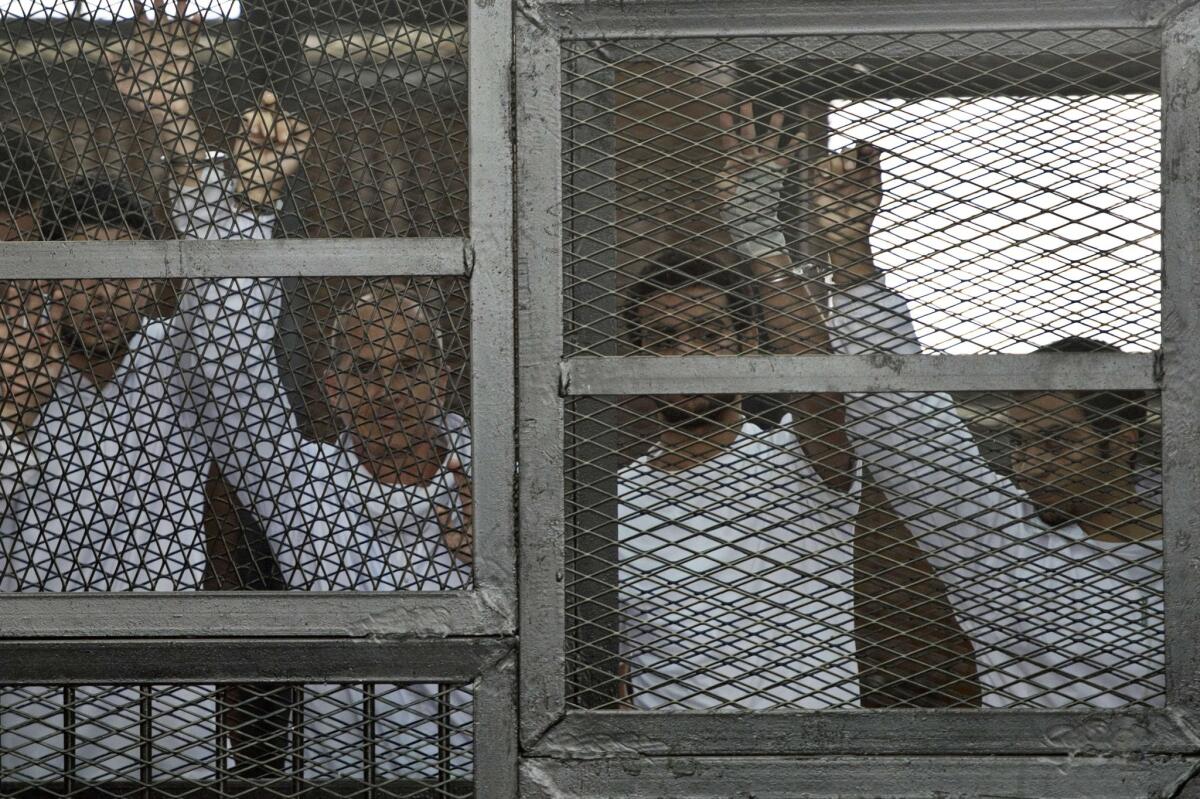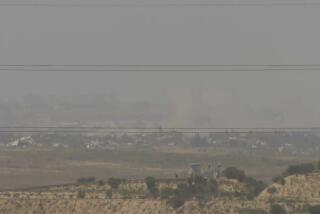Egyptian prosecutors display seized items in journalists’ trial

- Share via
CAIRO – Prosecutors in Egypt on Wednesday displayed seized items such as cameras, cables and microphones as evidence in the trial of 20 journalists on terrorism-related charges.
Defendants in white prison uniforms looked on from inside a metal cage at a high-security Cairo prison.
The case has drawn sharp criticism from media advocacy groups, human rights organizations and Western governments.
Four of the accused are Westerners, but only one of them, Australian correspondent Peter Greste, is in Egyptian custody. He and two colleagues from the news channel Al Jazeera English were jailed Dec. 29 amid a sweeping crackdown by Egypt’s military-backed interim government on perceived opponents.
The other Western defendants, two Britons and a Dutch woman, are being tried in absentia. Of the 16 Egyptians named in the case, five were in court Wednesday along with Greste. One of them, Al Jazeera English’s Cairo bureau chief, Mohamed Fahmy, also holds Canadian citizenship.
After an initial session of the trial last month that was largely procedural, the hearing Wednesday provided the first substantive look at the government’s case.
Prosecutors displayed a variety of seized items, which they have described as evidence of the journalists’ support for the Muslim Brotherhood, a banned Islamist group. But they did not explain how possessing equipment commonly used for news gathering linked Al Jazeera’s team to the Brotherhood, which has been designated a terrorist organization.
Al Jazeera has emphatically denied any wrongdoing on the part of its staffers. Greste, who was able to briefly speak with journalists from the courtroom cage, said it was clear the case was a political one.
Al Jazeera is owned by the Persian Gulf state of Qatar, which infuriated Egypt by opposing the coup in July that removed Islamist president Mohamed Morsi from office. The channel’s Egyptian branch was banned months ago from broadcasting inside Egypt over accusations of support for Morsi’s Brotherhood.
Under questioning from Fahmy’s lawyer, the lead investigator in the case cited no evidence other than employment by Al Jazeera to support the charge that Fahmy was a member of the Muslim Brotherhood. The investigator also conceded he was not aware that Al Jazeera English, which operates internationally, was editorially separate from the broadcaster’s Egyptian branch, and from its Arabic-language service.
“I’m not a media expert,” he said.
Egypt’s quarrel with Qatar has taken on region-wide dimensions. On Wednesday, the governments of Saudi Arabia, the United Arab Emirates and Bahrain – all of which support the current government and welcomed Morsi’s ouster – recalled their envoys to Qatar.
The journalists’ case was adjourned until March 24.
Twitter: @LauraKingLAT
Hassan is a special correspondent.
More to Read
Sign up for Essential California
The most important California stories and recommendations in your inbox every morning.
You may occasionally receive promotional content from the Los Angeles Times.










